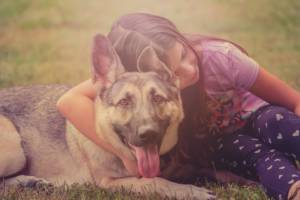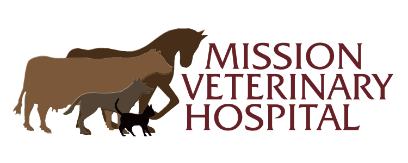Senior Pet Wellness
Due to improved veterinary care and dietary habits, pets are living longer now than they ever have before!
One consequence of this is that pets, along with their owners and veterinarians, are faced with a whole new set of age-related conditions. In recent years there has been extensive research on the problems facing older pets and how their owners and veterinarians can best handle their special needs.
Q: When does a pet become “old”?
A: It varies, but cats and small dogs are generally considered geriatric at the age of 7. Larger breed dogs tend to have shorter life spans and are considered geriatric when they are approximately 6 years of age. Owners tend to want to think of their pet’s age in human terms. While it is not as simple as “1 human year = X cat/dog years”, there are calculations that can help put a pet’s age in human terms:
Age: Human equivalents for older pets
| Cat years | Human years |
|---|---|
| 7 | 54 |
| 10 | 63 |
| 15 | 78 |
| 20 | 97 |
| Dog years | Human years (*dog size lbs) |
|---|---|
| 7 | Small – Medium: 44-47 |
| Large – Very large: 50-56 | |
| 10 | Small – Medium: 56-60 |
| Large – Very large: 66-78 | |
| 15 | Small – Medium: 76-83 |
| Large – Very large: 93-115 | |
| 20 | Small – Medium: 96-105 |
| Large: 120 | |
| *Small: 0-20 lbs; Medium: 21-50 lbs; Large: 51-90 lbs; Very large: >90 lbs The oldest recorded age of a cat is 34 years. The oldest recorded age of a dog is 29 years. |
|
Q: What kinds of health problems can affect older pets?
A: Geriatric pets can develop many of the same problems seen in older people, such as
- cancer
- heart disease
- kidney/urinary tract disease
- liver disease
- diabetes
- joint or bone disease
- senility
- weakness
Q: I know my pet is getting older. How do I help them stay happy and healthy for as long as possible?
A: Talk to your veterinarian about how to care for your older pet and be prepared for possible age-related health issues. Senior pets require increased attention, including more frequent visits to the veterinarian, possible changes in diet, and in some cases alterations to their home environment. Here are some basic considerations when caring for older pets:
Older pet care considerations
| Area of concern | Description |
|---|---|
| Increased veterinary care | Geriatric pets should have semi-annual veterinary visits instead of annual visits so signs of illness or other problems can be detected early and treated. Senior pet exams are similar to those for younger pets, but are more in depth, and may include dental care, possible bloodwork, and specific checks for physical signs of diseases that are more likely in older pets. |
| Diet and nutrition | Geriatric pets often need foods that are more readily digested, and have different calorie levels and ingredients, and anti-aging nutrients |
| Weight control | Weight gain in geriatric dogs increases the risk of health problems, whereas weight loss is a bigger concern for geriatric cats. |
| Parasite control | Older pets’ immune systems are not as healthy as those of younger animals; as a result, they can’t fight off diseases or heal as fast as younger pets |
| Maintaining mobility | As with older people, keeping older pets mobile through appropriate exercise helps keep them healthier and more mobile. |
| Vaccination | Your pet’s vaccination needs may change with age. Talk to your veterinarian about a vaccination program for your geriatric pet. |
| Mental health | Pets can show signs of senility. Stimulating them through interactions can help keep them mentally active. If any changes in your pet’s behavior are noticed, please consult your veterinarian. |
| Environmental considerations | Older pets may need changes in their lifestyle, such as sleeping areas to avoid stairs, more time indoors, etc. Disabled pets have special needs which can be discussed with your veterinarian |
| Reproductive diseases | Non-neutered/non-spayed geriatric pets are at higher risk of mammary, testicular, and prostate cancers. |
Q: My older pet is exhibiting changes in behavior. What’s going on?
A: Before any medical signs become apparent, behavioral changes can serve as important indicators that something is changing in an older pet, which may be due to medical or other reasons. As your pet’s owner, you serve a critical role in detecting early signs of disease because you interact and care for your pet on a daily basis and are familiar with your pet’s behavior and routines. If your pet is showing any change in behavior or other warning signs of disease, contact your veterinarian and provide them with a list of the changes you have observed in your pet. Sometimes, the changes may seem contradictory – such as an older pet that has symptoms of hearing loss but also seems more sensitive to strange sounds.
Possible behavior changes in older pets
- Increased reaction to sounds
- Increased vocalization
- Confusion
- Disorientation
- Decreased interaction w/humans
- Increased irritability
- Decreased response to commands
- Increased aggressive/protective behavior
- Increased anxiety
- House soiling
- Decreased self-hygiene/grooming
- Repetitive activity
- Increased wandering
- Change in sleep cycles

